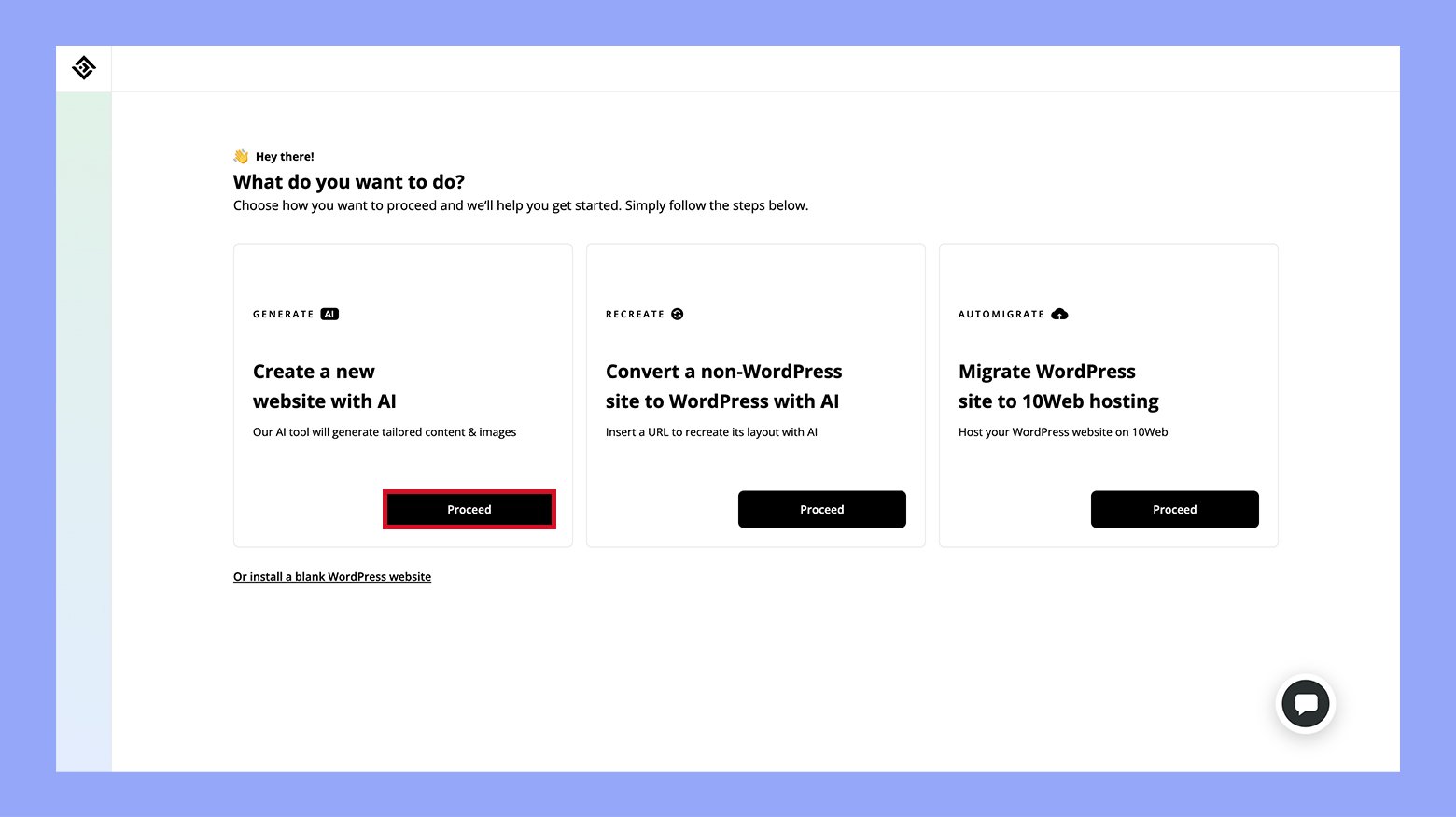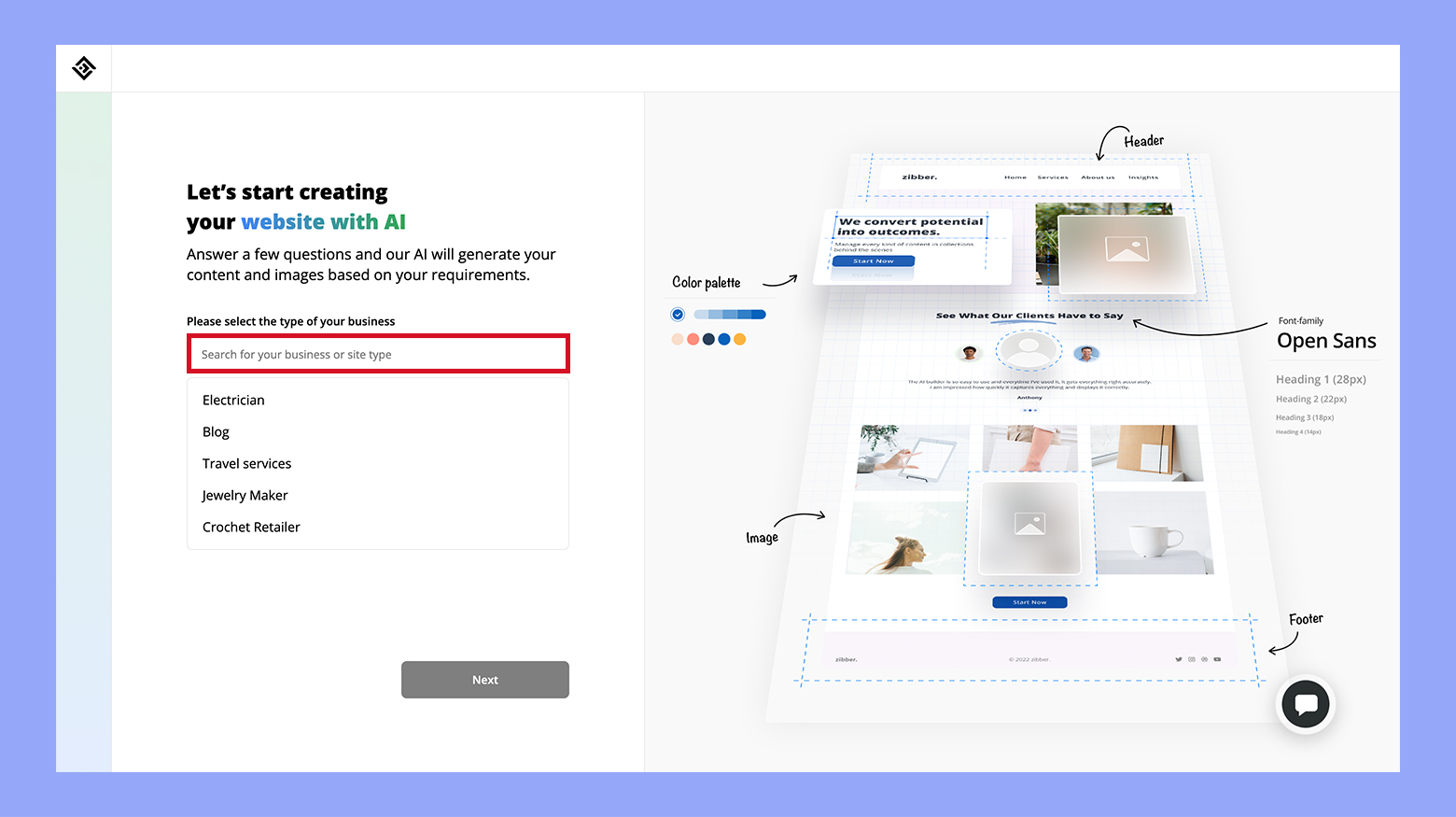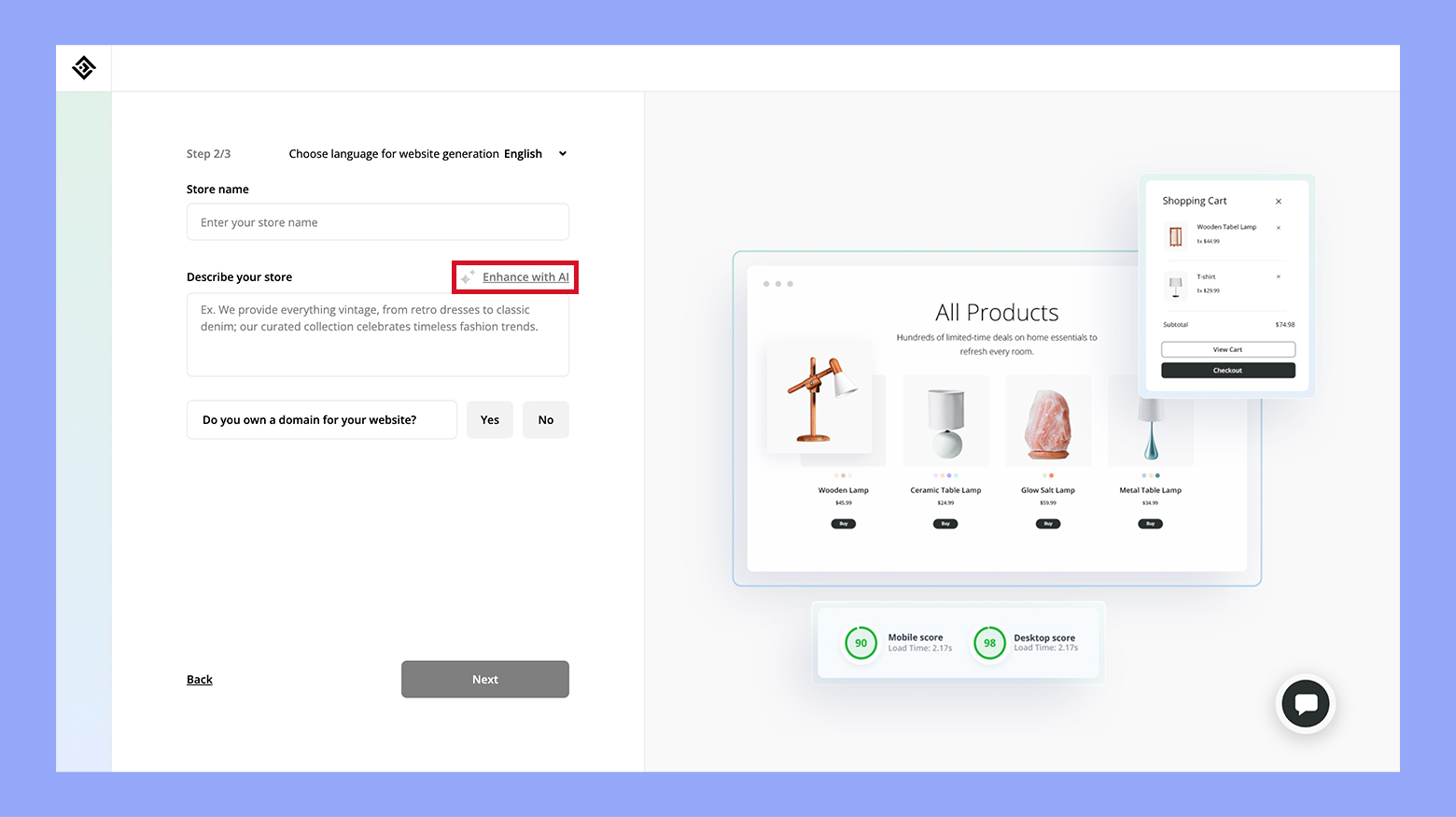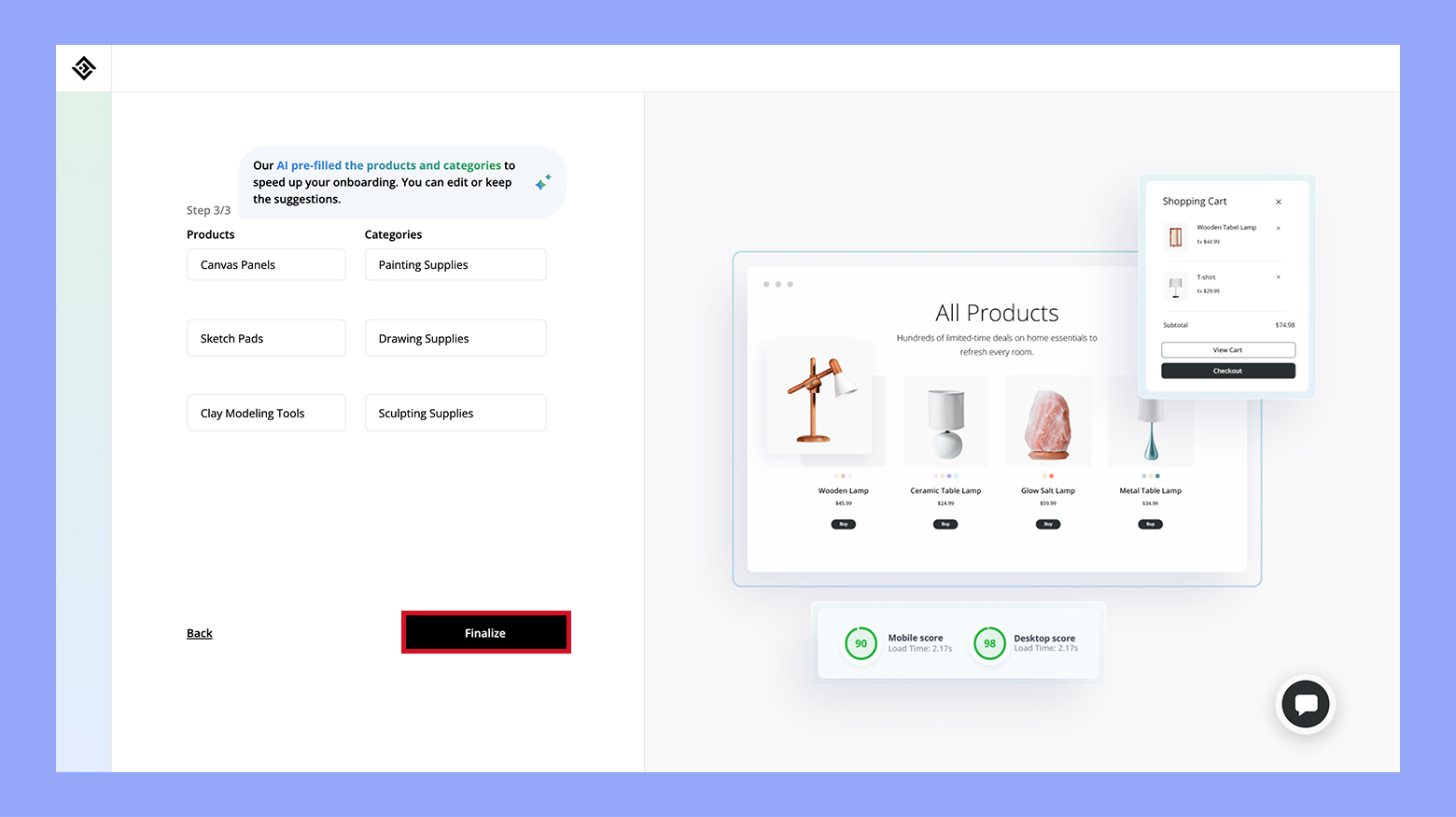The marketing industry is growing, with many opportunities for new businesses. With companies investing in marketing, there’s great potential for success. However, succeeding in this field requires careful planning. Let’s learn how to build a marketing consulting business that meets client needs and achieves long-term growth.
FAQ
What do you need to be a marketing consultant?
How do I start my own consulting business?
How much does it cost to start a consulting business?

Looking to sell online?
Create your custom online store in minutes with 10Web AI Ecommerce Website Builder and take your business online.
Stage 1: Getting started on your marketing consultancy
Starting a marketing consulting business involves assessing your expertise, defining your services, and conducting thorough market research to position yourself effectively.
Starting a marketing consulting business requires careful planning and legal organization. You need to develop a solid business plan, choose the right business structure, and handle all legal requirements.
Creating a strong brand identity is pivotal in starting a marketing consulting business. The key points include designing a distinctive logo, developing an online presence, and crafting a solid content strategy to communicate your value.
Step 1: Assessing your expertise and skills
Before you begin, look at your background. Identify your strengths in areas like brand marketing, digital marketing, or media. Think about which areas you are most passionate about and where you have the most experience.
Consider taking an inventory of your skills. Writing, analytical skills, and communication are all crucial in this field. Identify any gaps and consider whether you need additional training or certifications. Specializing can help you stand out—if your strengths lie in SEO, focus on that niche. Your unique blend of skills and experience will be the foundation of your consulting business.
Step 2: Defining your marketing consulting services
Next, define the services you plan to offer. Will you focus on marketing strategy, content creation, or social media management? Be specific about what you can offer to clients. It’s helpful to create a detailed list of your services.
Think about how you can provide value to your clients. Create packages or bundles that make sense for different types of businesses. If you are skilled in digital marketing, offer a comprehensive package that includes SEO, PPC, and email marketing. Being clear on your services helps set client expectations.

Explore the market
Conducting market research is necessary to understand your potential clients and competition. Begin by identifying your ideal client. Are they small businesses, startups, or large corporations? Knowing your audience helps tailor your services and marketing efforts.
Analyze your competition. Look at other marketing consultants and see what they offer. Identify gaps in the market where your services could fit. Research industry trends to keep your services relevant.
Gathering this information allows you to create a focused business plan and marketing strategy. Use your findings to highlight your unique selling points and differentiate your consulting business from others. Effective market research positions you for success right from the start.
By following these steps, you get a clear path to starting a marketing consulting business and position yourself to help clients succeed.
Step 3: Creating a detailed business plan
Your business plan is the roadmap for your marketing consulting business. It includes your goals, strategies, market analysis, and financial projections.
First, define your services. Specify exactly what marketing services you will offer.
Next, identify your target audience. Determine which types of businesses will benefit most from your services.
Then, study your competition. Understand who your competitors are and what makes them successful.
Finally, outline your finances. Estimate your startup costs, pricing strategy, and expected revenues.
| Section | Content |
| Services | List of marketing services you’ll provide |
| Target Audience | Types of businesses you’ll serve |
| Competition | Analysis of competitors and market opportunities |
| Financial Projections | Costs, pricing, and income forecasts |
Step 4: Choosing your business structure and setting up the business legally
Choosing the right business structure affects your taxes, personal liability, and ability to raise funds.
- Sole proprietorship: Simple to set up and run, but you are personally liable for debts.
- LLC (Limited Liability Company): Protects your personal assets from business liabilities. It is more flexible in terms of management and tax benefits.
- Corporation: Offers the highest level of personal liability protection, but is more complex and expensive to maintain than other structures.
Consider your business size, future growth plans, and how much personal liability you’re willing to assume.
To operate legally, you need to register your business and meet all legal requirements.
First, register your business name. Ensure that it is unique and reflects your brand.
Second, obtain necessary permits and licenses. This could include general business licenses or specific marketing consulting permits.
Third, apply for an EIN (Employer Identification Number) from the IRS for tax purposes.
Fourth, open a business bank account. Keep your personal and business finances separate to simplify accounting.
Lastly, get business insurance. Protect your business from unexpected liabilities.
Step 5: Designing your logo and brand identity
The first step is to design a unique logo. Your logo should reflect your brand’s vision and values. Consider hiring a professional designer if you’re not confident in your design skills.
A well-crafted logo helps in making a memorable impression. Use consistent colors, fonts, and visual elements. These elements form the core of your brand identity and should be present in all your communications.
Think about your unique value proposition. What sets your business apart? Ensure that your visual identity speaks to this uniqueness.
Step 6: Defining a content strategy
A solid content strategy is key to engaging your target audience. Start by identifying the topics relevant to your clients. Create high-quality content that provides value and demonstrates your expertise.
Use a mix of formats such as blog posts, videos, and infographics. Consistency is crucial. Stick to a regular posting schedule to keep your audience engaged.
Make sure to share your content across all your platforms. This increases visibility and reinforces your brand identity.

Looking to sell online?
Create your custom online store in minutes with 10Web AI Ecommerce Website Builder and take your business online.
Stage 2: Developing the key strategies for your marketing consulting business
When starting a marketing consulting business, pricing your services and selling them effectively are crucial steps. Additionally, delivering value through targeted campaigns, efficient operations, strong client connections, and clear demonstrations of impact are key components to ensure the growth and success of your business.
Step 1: Determining your rates
Setting your consulting rates can be tricky. You want to be competitive but also make sure you’re compensated fairly for your expertise. There are several pricing strategies you can use:
- Hourly billing: Charge clients for each hour of work.
- Retainer agreements: Clients pay a set fee regularly for guaranteed services.
- Project-based: A flat fee for specific projects.
- Value-based pricing: Charge based on the value your services bring to the client.
Each method has pros and cons. Hourly billing is straightforward but might limit income potential. Retainer agreements provide stability but require long-term commitments. Project-based fees are predictable but might not cover unforeseen issues. Value-based pricing can be very lucrative if you effectively show the value you bring.
Step 2: Sales techniques for consultants
Effective sales techniques are key to landing clients. Start by understanding potential clients’ needs. Listen carefully and ask questions to understand their challenges. Then, clearly explain how your services can solve their problems.
Here are some strategies to consider:
- Build relationships: Networking and building relationships can help gain clients’ trust.
- Offer free initial consultations: A free consultation can demonstrate your value.
- Showcase case studies: Display previous success stories to highlight your capabilities.
- Use value propositions: Clearly state the benefits and outcomes clients can expect.
- Follow up: Stay in touch with prospective clients without being too pushy.
Highlight your expertise and the success you’ve brought to past clients. Be confident, clear, and considerate. This can help you stand out and make clients eager to work with you.
Step 3: Identifying client’s needs and pain points
Start by thoroughly understanding your client’s business and market. Conduct surveys, interviews, and market research to find out what challenges they face. Look for specific pain points affecting their growth or customer engagement.
Use data and insights to tailor your strategies. Analyze the competition to see what’s working for others in the same industry. Identifying these needs will help create customized solutions that directly address the client’s issues.
Step 4: Creating and executing marketing campaigns
Once you know the client’s needs, develop targeted marketing campaigns to address these pain points. Create clear objectives for each campaign, such as increasing brand awareness, driving sales, or attracting new customers.
Use various marketing channels to reach the target audience effectively. This could include social media, email marketing, or paid advertising. Track the campaign performance using analytics tools. Regularly update the client on the impact and adjust strategies as needed to maximize results.
These steps are essential for anyone learning how to start a marketing consulting business and deliver real value to clients.
Step 5: Streamlining project management and implementing efficient systems
Breaking down projects into manageable tasks is crucial. Use tools like Trello, Asana, or Jira to organize tasks with deadlines, assignees, and progress tracking.
Assign clear roles to team members. Define who is responsible for which tasks and ensure everyone understands their role.
Regular updates are vital. Hold brief check-in meetings to assess progress and handle issues promptly. Use Gantt charts to visualize project timelines and adjust as needed.
Document every step. Keep detailed records of project milestones, client feedback, and final deliverables. These records can help with future projects and improve transparency.
An efficient client relationship management (CRM) system can also make a big difference. A CRM automates client management, tracks interactions, and organizes data. Consider tools like Salesforce, HubSpot, or Zoho CRM for your consultant business.
Automate routine tasks. Set up automated emails for follow-ups, reminders, and updates. This ensures consistent communication and saves time.
Integrate your CRM with other tools. Link it with your project management software, email platforms, and calendar. This creates a seamless flow of information and avoids data duplication.
Run regular analysis. Use CRM reports to analyze client interactions, identify trends, and optimize strategies. This keeps your operations data-driven and client-focused. Using these approaches will help you navigate how to start a marketing consulting business effectively.
Step 6: Securing referrals and repeat business
Securing referrals and repeat business is essential for sustaining and growing your marketing consulting business. Start by delivering exceptional service and ensuring client satisfaction. Building a positive relationship encourages clients to recommend your services to others.
Ask for feedback regularly to understand what you’re doing well and areas you can improve. Use testimonials to showcase your success stories in your portfolio. This illustrates your expertise and enhances your credibility.
Retain clients by frequently engaging with them and offering loyalty programs or discounts for continued use of your services. Also, consider implementing CRM software to keep track of client communications and project progress.

Looking to sell online?
Create your custom online store in minutes with 10Web AI Ecommerce Website Builder and take your business online.
Step 7: Handling contracts and negotiations
Handling contracts and negotiations effectively protects both you and your clients, creating a solid foundation for a professional relationship. Initially, draft clear and precise contracts that outline the scope of work, deliverables, timeframes, costs, and payment terms.
During negotiations, be transparent about your capabilities and limitations, and listen actively to your client’s needs. Foster a collaborative approach to find mutually beneficial terms.
Review contracts carefully before signing, ensuring all terms are well understood. Consider consulting with legal experts if necessary. By managing this process thoughtfully, you set the stage for successful engagements and lasting business relationships.
Follow these key steps to ensure your contracts and negotiations run smoothly:
- Draft clear and detailed contracts.
- Be transparent with your clients.
- Listen to client needs and collaborate.
- Review contracts thoroughly.
- Seek legal advice if needed.
Step 8: Conducting performance evaluations
Regularly measure the performance of your marketing strategies to understand their effectiveness. Start by setting clear, measurable goals for your campaigns, such as improvement in email open rates or website traffic. Use tools like Google Analytics and CRM software to gather and analyze data.
- Identify Key Performance Indicators (KPIs) that align with your client’s goals.
- Evaluate metrics such as conversion rates, click-through rates, and return on investment (ROI).
- Schedule performance reviews to discuss these metrics with your clients.
By focusing on these steps, you can ensure your marketing strategies are meeting their objectives, and you can make adjustments as needed.
Step 9: Building trust and growing your business
Case studies are powerful tools to demonstrate the success of your marketing consulting business. They provide real-world examples of how your strategies have made a difference.
- Choose diverse and compelling examples that showcase different aspects of your work.
- Include details such as the initial challenge, the marketing plan you developed, and the results you achieved.
- Use before-and-after statistics and quotes from satisfied clients to add credibility.
By sharing these stories, you can build trust with potential clients and highlight your expertise as a marketing consultant. Case studies make it easier for new clients to understand the impact of your services and envision their own success.
Diversifying your service portfolio
Offering varied services can attract a broader client base. Start by understanding your strengths and interests. Then, consider adding services such as social media management, content creation, or email marketing.
Consider types of consulting services: strategy consulting, digital marketing, and branding. Think about what each type involves and how it fits with your expertise. Expanding your services can increase your revenue streams and provide more value to your clients. Plus, it positions you as a full-service marketing consultant. This is a great step when you’re figuring out how to start a marketing consulting business.
Stage 3: Marketing your services
To grow your marketing consulting business, focus on creating an engaging online presence, leveraging social media, and building valuable connections with other professionals.
Step 1: Establishing an effective website
Having a strong website is critical for your marketing consulting business. This is where potential clients will learn about your services and reach out for more information. Make sure your website clearly outlines what you offer, showcases testimonials from satisfied clients, and includes a blog with helpful marketing tips. You can do it with 10Web, and here’s how:
- Go to the 10Web Website Builder page and click Generate your website.

- Select Proceed to create a new website with AI.

- Enter your business type.

- Provide a business name and description. Use the Enhance with AI tool if needed.

- Choose Yes to get a domain or click No if you have one already.
- Enter details for your first three services and categories. AI will pre-fill them for you, you can edit or keep the suggestions. When done, click Finalize, and wait for 10Web to generate your site.

- Once your site is generated, preview it and make any necessary adjustments using the user-friendly tools provided by 10Web.
Ensure your website is easy to navigate and mobile-friendly. Use professional images and clear call-to-action buttons like Contact Us and Get a Quote. Investing in Search Engine Optimization (SEO) can help your site rank higher in search results, making it easier for clients to find you.

Looking to sell online?
Create your custom online store in minutes with 10Web AI Ecommerce Website Builder and take your business online.
Step 2: Utilizing social media platforms
Social media is a powerful tool for promoting your services. Platforms like LinkedIn, Facebook, and Twitter allow you to connect with a broad audience and share your expertise. Regularly post content that highlights your skills, such as case studies, success stories, and marketing tips.
Use targeted ads to reach potential clients who may need marketing consulting. Engage with followers by responding to comments and messages promptly. LinkedIn is particularly useful for networking with other professionals and joining industry groups to expand your reach.
Step 3: Networking and partnerships
Building a strong network and forming partnerships with other businesses can significantly benefit your consulting business. Attend industry conferences, workshops, and webinars to meet potential clients and partners. Join local business groups and online communities related to marketing to stay informed and connected.
Collaborate with complementary businesses, such as web development firms or graphic design studios. This can provide mutual referrals and new opportunities. Establishing these connections can enhance your brand’s credibility and make it easier to find new clients.
Step 4: Keeping up with marketing trends and AI
Marketing evolves rapidly. Staying updated on trends like social media algorithms, SEO changes, and content marketing strategies is essential. Follow industry blogs, attend webinars, and join professional networks.
AI is transforming marketing. Tools that use AI can help with market research, customer segmentation, and personalized campaigns. Learn how to leverage AI in your work to offer cutting-edge solutions to your clients. Integrating AI tools into your practice can also streamline tasks and make your services more efficient.
Conclusion
Starting a marketing consulting business is an exciting opportunity in a dynamic field. Success requires careful planning, market research, and strategic execution. Assess your expertise, define your services, and understand your target audience and competitors to differentiate your brand and attract clients. Using tools like 10Web can streamline website management. With diligent preparation and effective marketing, you can build a thriving marketing consulting business.


















